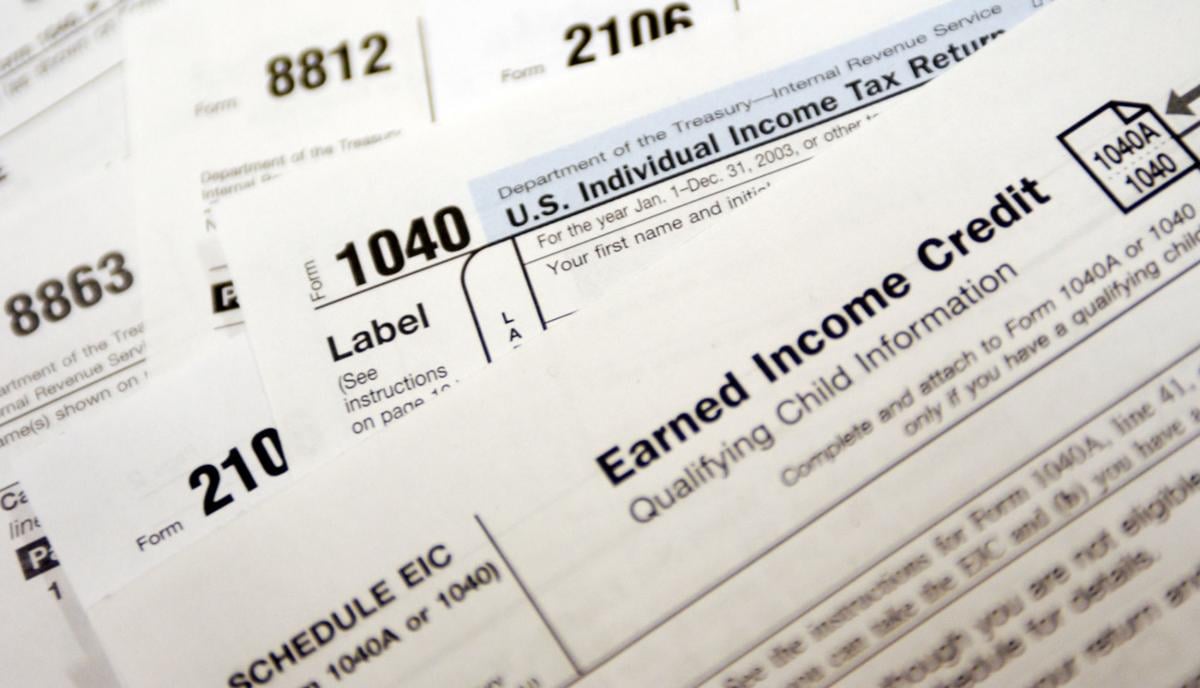PHOENIX — Arizonans would get an immediate income tax break.
But a proposal to let the state’s three universities borrow $1 billion they say they need may be in trouble.
The final version of the Republican-crafted state budget set for debate Thursday, May 4, calls for a $50 increase in the $2,100 individual exemption available to all Arizonans. There would be an identical boost the following year, with future changes linked to inflation.
That exemption on the annual income tax form is a subtraction from income, reducing the amount against which taxes are assessed. The $2,100 figure has not been adjusted in decades.
Taxpayers should not expect a big windfall, however.
The state’s top tax rate, which applies only to individuals earning more than $150,000 a year, is 4.54 percent. Reducing taxable income by $100 translates out to a savings of just $4.54.
For those in the 3.9 percent tax bracket — individuals earning between $25,000 and $50,000 a year — the savings would be less than $4.
However small the tax cut, House Speaker J.D. Mesnard said it’s enough to cement the necessary Republican votes for the $9.8 billion state spending plan.
The last-minute addition of the income tax break, however, still leaves Republicans short of the votes they need for the university bonding plan, which is in separate budget legislation.
The House and Senate education committees did side Wednesday with authorizing the borrowing and allocating funds for the first payment of the 25-year package: $11.9 million to Arizona State University, more than $10.5 for the University of Arizona and $4.5 million to Northern Arizona University. There would be commitments for additional state dollars in the future; universities would be required to provide matching dollars.
But the legislation was approved by the committees with no Democratic support as members of the minority party are, at least for the moment, sticking to their promise to oppose more dollars for universities unless they get something else they want.
The real crunch will come Thursday when the proposal needs final votes.
Both Senate President Steve Yarbrough and the House’s Mesnard conceded Wednesday they do not have sufficient Republican votes for the plan in their full chambers.
That would leave GOP leaders dependent on Democrats, who have two demands. One is a 4 percent pay raise for teachers, double what’s in the budget plan. The price tag for this is $68 million.
“I’m not sure where we’d find the money,” said Yarbrough.
The other is a policy question dealing with Temporary Assistance for Needy Families. Two years ago, with Gov. Doug Ducey’s support, Arizona cut TANF eligibility to just 12 months, the shortest in the country.
In January, Ducey had a change of heart and agreed to go back to 24 months — but with conditions that Democrats say will result in children losing aid because of a single mistake of a parent. They argue there is no reason for such provisions, especially with the dollars all coming from Washington, D.C.
Mesnard chastised Democrats for holding out their support.
But Sen. Catherine Miranda, D-Phoenix, said she won’t be cowed into supporting the university funding plan by taunts that refusing to vote for it means she does not support education.
“We all agree that we need to support our universities,” Miranda said, but she added there’s a bigger issue here. “We cannot support universities off the back of K-12s. My message today is the universities need K-12. Without supporting our teachers with a 4 percent raise ... you’re not going to get vibrant, well-skilled, well-educated workers to continue all the innovation that you have done.”
The Democrats’ hold-out came despite pleas from officials from all three universities that the money is not only needed but will benefit the state.
“We’re going to cure valley fever,” Jon Dudas, secretary of the University of Arizona, told lawmakers, boasting of “world-class research” being done at the school. He said the school also has funding he predicts will cure asthma.
Rita Cheng, president of Northern Arizona University, told lawmakers her school is involved in “research-critical areas” such as land management and forest health.
And Arizona State University President Michael Crow sought to wow lawmakers with stories about how research being done for the Department of Defense will allow a soldier to control up to 10 drones with just his or her thoughts.
David Lujan, lobbying for the Children’s Action Alliance, responded by arguing none of this will be possible without properly educated students coming from the K-12 system. He urged lawmakers to oppose the bonding program unless they also approve the 4 percent teacher pay raise.
That brought Eileen Klein, president of the Arizona Board of Regents, to her feet. “I’m just stunned to hear that we would have people who would be testifying from the education community against this opportunity for our public universities.”





